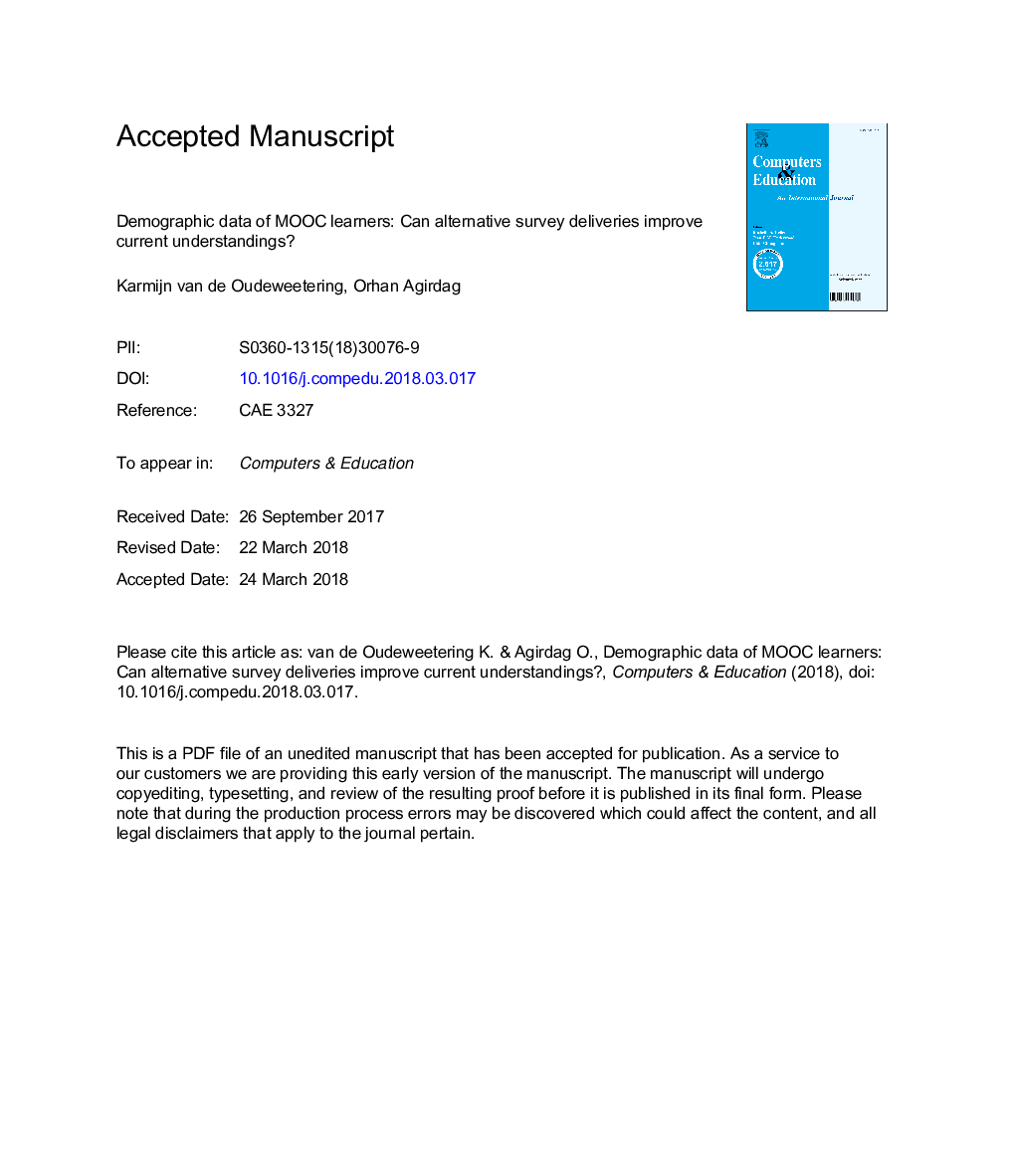| Article ID | Journal | Published Year | Pages | File Type |
|---|---|---|---|---|
| 6834707 | Computers & Education | 2018 | 31 Pages |
Abstract
Although demographic data in Massive Open Online Courses (MOOCs) have regularly been reported, these data are mainly retrieved through email-based surveys with very low response rates. This indicates an increased risk of misrepresentation. This study examined whether a survey embedded in the MOOC environment could yield higher response rates, could affect the representation of demographics and influence the estimated effects of demographics on learning outcomes. In six MOOCs, learners (Nâ¯=â¯3834) were randomly assigned to receive a demographic survey only by email or to receive the embedded survey too. Results showed that the inclusion of the embedded survey caused response to increase from 6.9% to 61.5%. Although survey delivery barely affected the representation of demographics, it did influence the estimated effects of parental education and country of residence on learning outcomes. The findings raise awareness about the importance of survey delivery for response rates and data quality in MOOCs.
Related Topics
Social Sciences and Humanities
Social Sciences
Education
Authors
Karmijn van de Oudeweetering, Orhan Agirdag,
